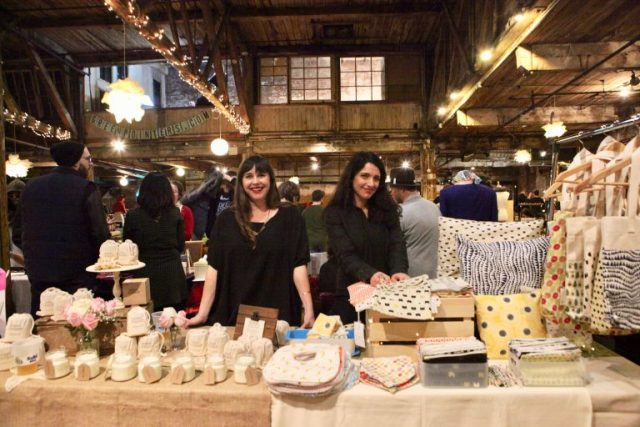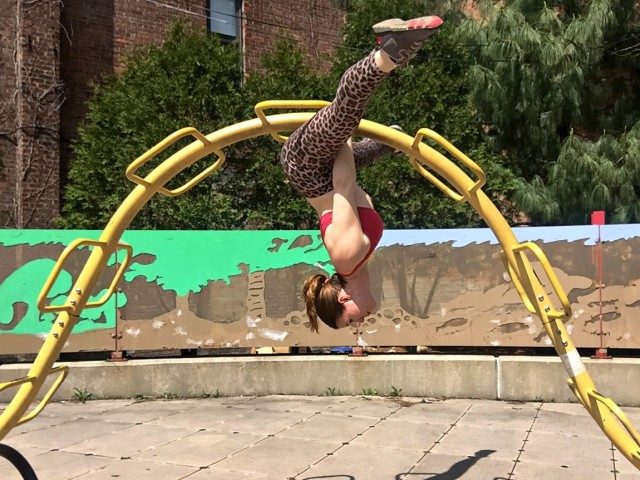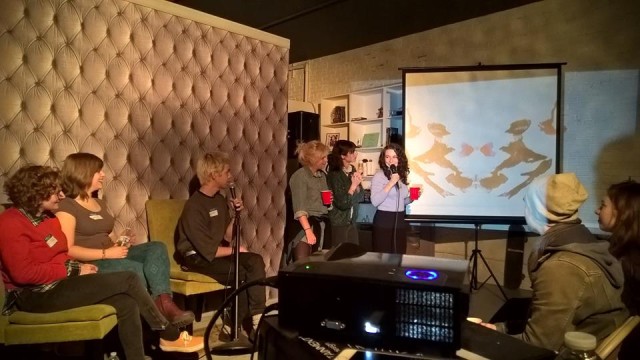
If you’ve been following Brokelyn’s series of articles on getting the nerve up to try an open mic and then killing it at said open mic, then you must have realized we’re telling you (yes, YOU) that Brooklyn always needs another comedian. You’ve been working on your material, getting up on any stage where you can get time, and rotating through all the bars in the metropolitan area. Maybe you’ve even met some people and gotten booked onto shows! And maybe now you’re wondering what the next move is? Contact the Tonight Show? Work on a TV pilot centered around your quirky life? Both of those will work, but you might also consider creating your own comedy show.
Sounds a little intimidating, you say? Don’t worry, Comedy Dad is here to help.
Why a Show?
Why produce a comedy show? First, having your own show guarantees you something that no other show in New York can promise: stage time. Dear God That’s Stone Cold’s Music! gives me a standing appointment to keep my comedy sharp every month, and I always have an outlet for new material. I can do 5 minutes, or even 10 or 15. It’s my show, so I define the format.
Hosting your own show also helps you network, especially with more established comedians. It’s great to meet other comedy folks at open mics, but it’s a certain tier of comedy people who stick to those spots. Hosting a show gives you the potential to meet the people who are really succeeding in this business, including some of your personal comedy heroes.
____________
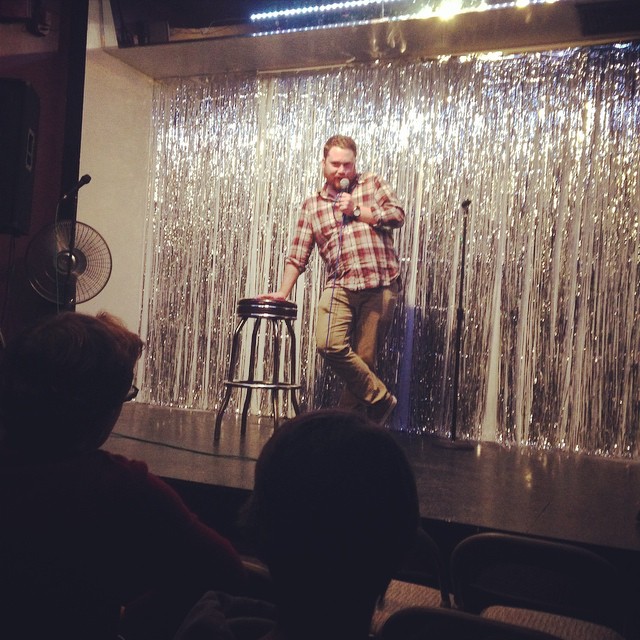
Finally, your comedy show is your calling card. Are you getting asked to do shows around New York? Now you have something to plug. Do you have friends and family telling you how much they want to see your standup? Now they have a regular show instead of random dates at random bars. Talking to someone in the industry who’s looking to see what you’ve got? You get the point.
Now hopefully this is all it took to convince you, and you’re already trying to think of a super clever name for your show. Let’s go over some basics you should work out before you set that first show date.
Plan your show wisely.
Here’s the thing: New York is FULL of indie comedy shows. They’re all free, they’re all over, and they often feature a lot of the same comedians. So if you want to differentiate yourself from the herd, come up with a format. If you’re at odds for how to do that, just start by asking yourself why anyone would come to see your show. If you can come up with an answer that doesn’t involve you or your own comedy, or your lineup, chances are you’re onto a good idea.
______________
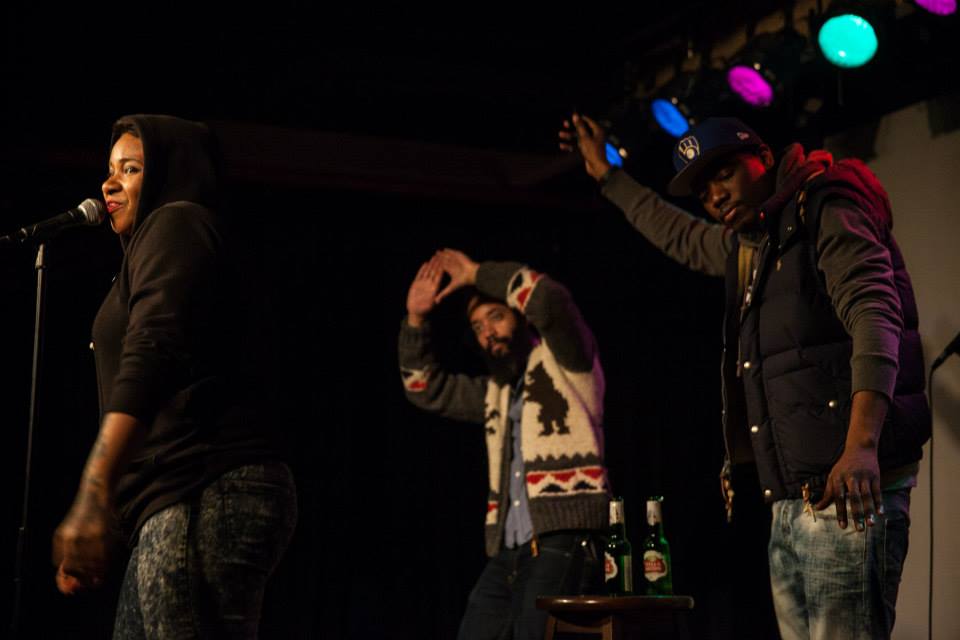
Now, say it with me: We aren’t all Wyatt Cenac (yet). Night Train and its marquee names are already a proven commodity to comedy audiences. You and your guests are most likely not. Even though it’s fairly easy to get an amazing lineup of famous comedians (more on this in Part II), it shouldn’t be something you rely on from show to show. The first thing on your mind should be concept; talent-wrangling comes later.
Regular comedy shows are generic. Think of something that will attract audiences based on the concept, as opposed to the promise of a good lineup. Natalie Wall hosts the very successful Awkward Sex and the City, which focuses on cringe-worthy personal sex stories. Naomi Ekperigin and Andy Beckerman host In Stereo, a show where comedians who have some sort of relationship with each other (romantic or platonic) perform together on stage. Sam Corbin and Ally Spier do Subreddit Live, a show that comments on and interacts live with the internet. And Dear God That’s Stone Cold’s Music! is just a mixture of booked comedians and open mic. The upshot is, there’s no golden rule about high or low concept. It can be whatever you like.
_____________
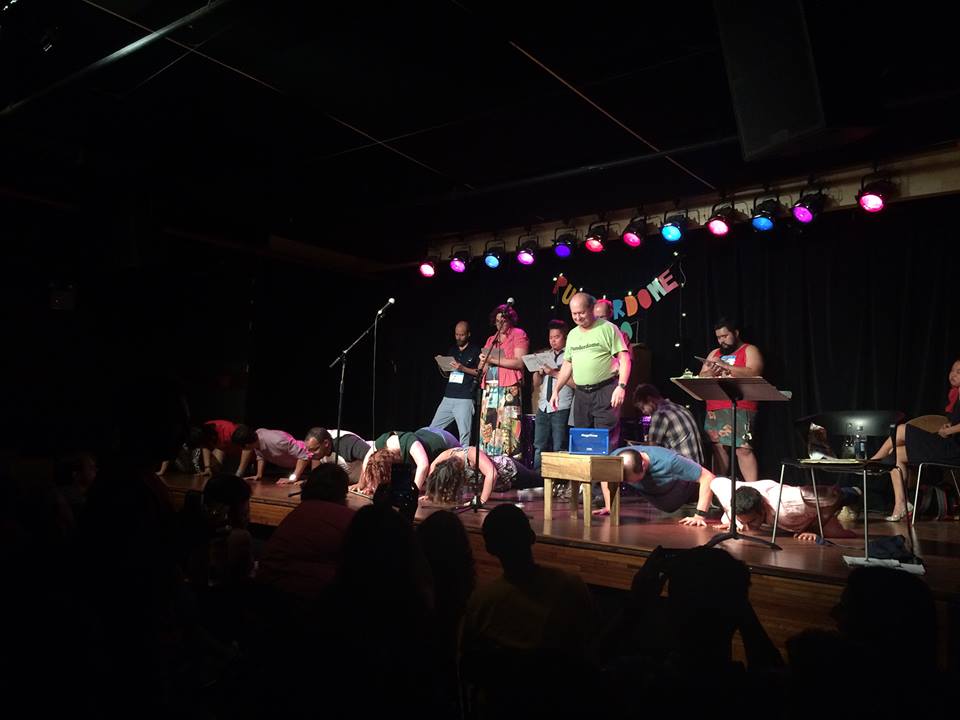
One quick warning about format, though: it’s easy to overproduce a comedy show, hoping that bells and whistles will wow the crowd. You also need to think about sustainability and execution. Loading too much junk into your show runs the risk of becoming a tech nightmare, especially if you don’t have a dedicated tech. You want to strike a balance between lo-fi DIY and looking like you put some thought into your show. You also want something you can repeat for future shows, with a certain amount of ease. So while an animated Powerpoint or a produced video or pyrotechnics may sound like awesome ideas, just remember that projectors break, computers get glitches, and fiery things light other things on fire. Keep it clever, and keep it simple.
Finding a location
Here’s the good news: this is the easiest part of the job! Usually, your best bet is a bar, because it’s a win-win relationship: you get a performance space, and they get a bunch of clientele into their bar on an otherwise quiet night. In that case, find the right bar. First, look for a place that is as convenient as possible for people to get to. (E.g. Red Hook, with its lack of subways, is out.) If you’re unsure whether a bar is in a good location, ask yourself this: if this were a friend’s show, would you schlep all the way there? If you hesitated, or thought maybe I’d go once, just to be nice, then that’s probably how everyone will feel about your show.
_____________
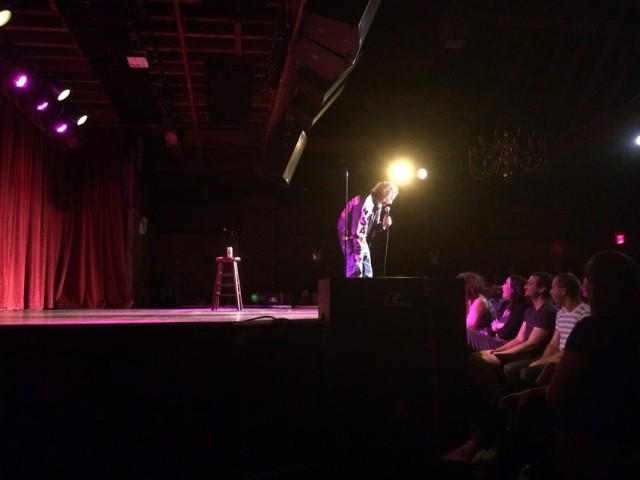
Next, check out the premises. The ideal situation is a bar that has a legitimate separate room, preferably with a door to shut out the noise. You have no idea how far a door goes in giving your show the perfect atmosphere, and your comics will appreciate it, too. You may also want to see what their AV situation is like. Some bars have a full sound system and projector for a real multimedia experience. Some don’t even have an amp. For my very first comedy show, I had to run to PC Richards to buy the display model of a karaoke machine.
Last up, how are the owners? Do they seem cool and reasonable to work with? Are they willing to give you a dedicated and recurring date for your show, and at the same time slot? Will you get drink tickets for your performers? Remember, you’re doing them a big favor, performing for free and bringing people in. Be courteous, but also on the lookout for anything shady.
So, now that you’ve got the tips on conceiving your very own show, you should be ready to run out the door and start bar-hopping to get those show dates! But don’t dive too fast into the comedy showrunning pool, kids. Tune in for Part II, where we’ll talk about execution!
For more Funny 101, follow Comedy Dad on Twitter @primesilver
Leave a Reply


